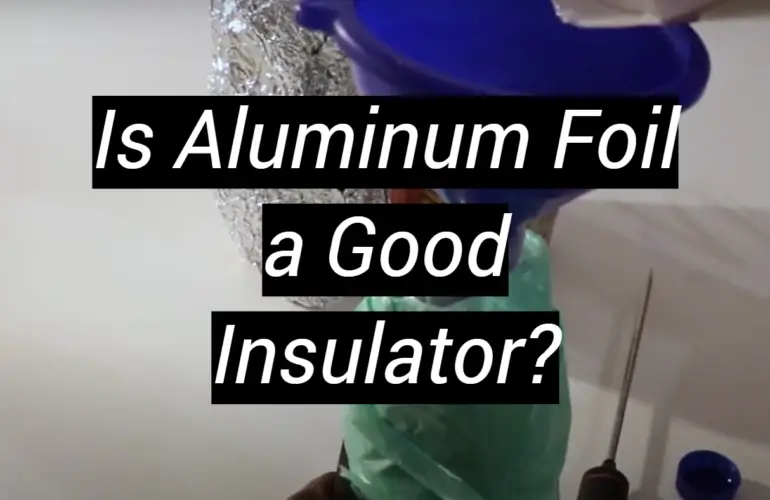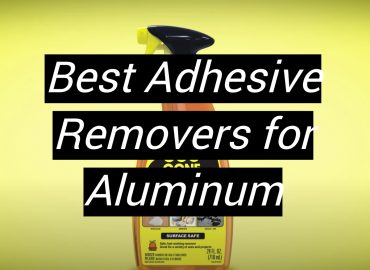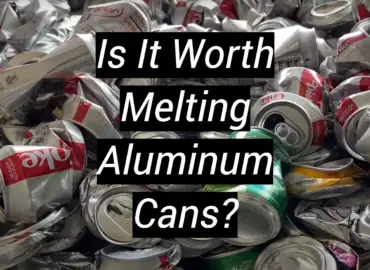Aluminum foil has been a staple in our kitchens for decades. But have you ever wondered how effective it is when it comes to heat insulation? Is aluminum foil actually an effective insulator as we’ve come to believe, or is there something else that works better? In this blog post, we’ll be exploring the history and science of using Aluminum Foil as an insulator, discovering its limitations and potential applications – so if you’ve ever asked yourself whether Aluminum Foil really works as an insulator, read on!
Is Aluminum Foil a Good Insulator?
The answer to this question really depends on the application. Aluminum foil is a good conductor of heat, making it useful for wrapping food where you want to cook evenly – like with baked potatoes – but undesirable in applications where insulation is desired.
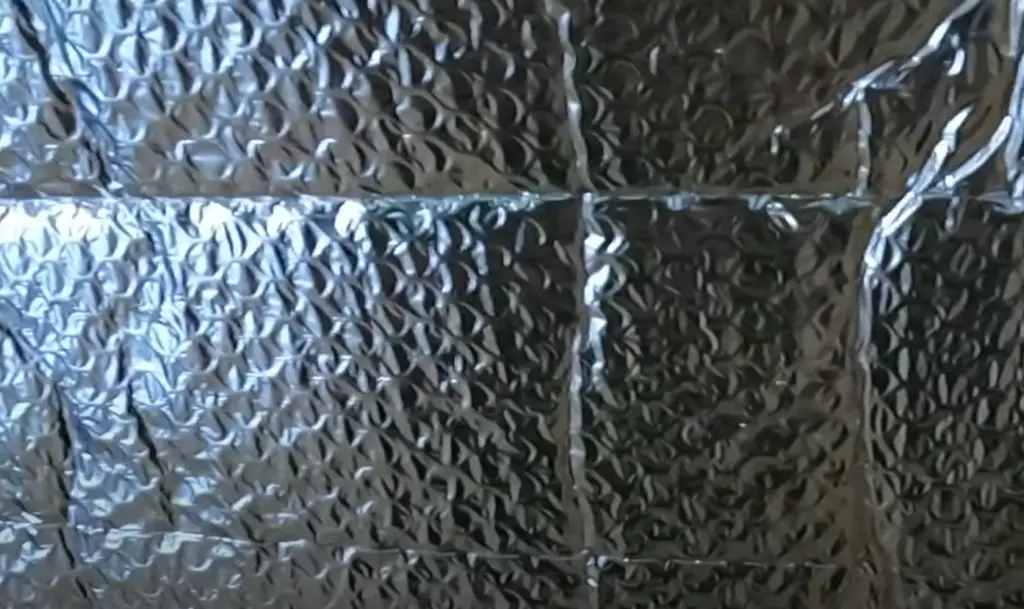
In some circumstances, aluminum foil can be used as an insulator by reflecting heat away from its surface. This is why it’s commonly found wrapped around hot water tanks or air conditioning units. The reflective nature of the metal helps keep these units at their desired temperature by bouncing excess heat away from them.
When used for insulation, aluminum foil is often combined with other materials such as fiberglass or foam. This combination increases its effectiveness and helps it to better insulate various items, rooms, or buildings.
Ultimately, while aluminum foil can be used as an insulator in some cases, it’s best to use the right material for the job. Check with your local hardware store or home improvement expert to determine the best insulation option for your project. [1]
Conduction
Aluminum foil is not a good insulator against conduction. Conduction is the transfer of heat energy through an object, and aluminum foil does not effectively block this kind of heat transfer. For example, if you wrap a hot pudding in aluminum foil and place it on a cold countertop, the pudding will still cool down from the countertop—the aluminum foil does not stop the conduction of heat moving from the hotter object (the pudding) to the cooler object (the countertop). Radiation and convection are two other forms of heat transfer that are also poorly blocked by aluminum foil.
Convection
Convection is the transfer of heat caused by currents within a medium. It occurs when warm materials move from one place to another, like in air or water. Since aluminum foil does not absorb heat, it cannot trap heat and therefore does not cause convection. This makes it an effective insulator for keeping things cool or preventing excessive heat loss. For this reason, it is often used as insulation in buildings and appliances.
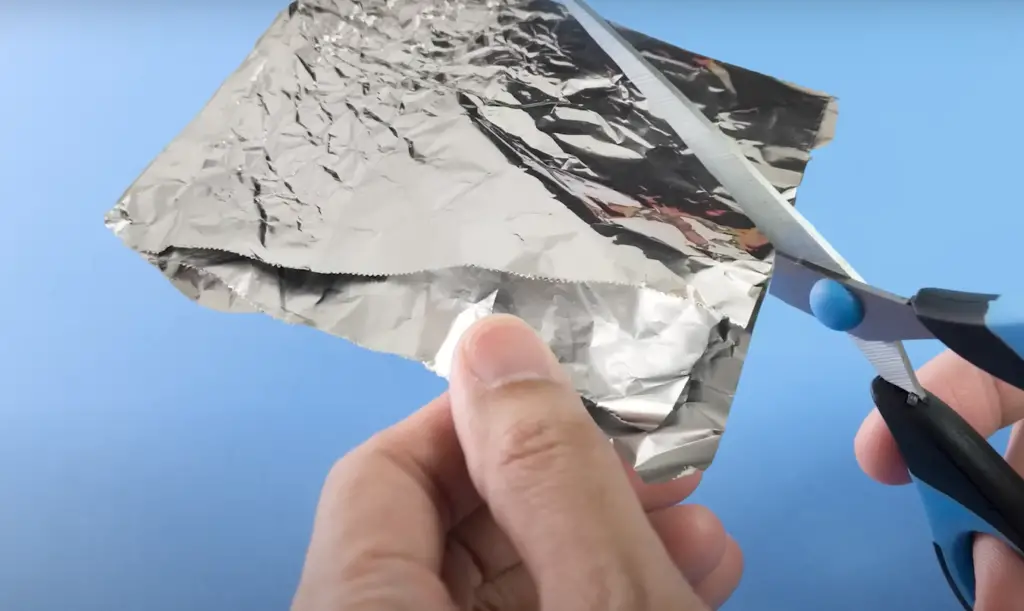
Additionally, since aluminum foil reflects rather than absorbs radiation energy and heat (radiant energy), it can also be used to keep objects cooler by reflecting away some of the incoming radiation energy that comes from sources such as sunlight or an oven. In conclusion, aluminum foil does act as a good insulator due to its reflective properties and inability to absorb heat. As a result, it can help keep things cool or prevent excessive heat loss. Additionally, aluminum foil can be used as an effective insulator in buildings and appliances.
Radiation
Radiation is the transfer of energy through space in the form of waves or particles. Since aluminum foil reflects radiation rather than absorbing it, it can be used to keep objects cool by reflecting away some incoming radiation energy from sources such as sunlight or an oven. This makes aluminum foil a good insulator against radiant heat transfer, helping to maintain a stable temperature within an enclosed space. However, aluminum foil is not as effective at preventing the transfer of convective heat or conduction. Convection is the movement of heat through currents in liquids and gasses, while conduction is the direct transfer of heat between two solid objects that are touching each other. In order to effectively insulate against these types of energy transfers, it would need to be supplemented by multiple layers of insulation material such as foam or fiberglass.
Aluminum foil can also be a useful tool for blocking electromagnetic radiation from entering or leaving an appliance. This type of radiation includes things like X-rays, radio waves, microwaves and infrared light.
This can be especially important for devices that handle sensitive data such as cellphones, computers and credit card readers.Overall, aluminum foil is an effective way to reflect radiant heat energy and block certain types of electromagnetic radiation, but it is not a good insulator against convection or conduction. To maximize its effectiveness, it should be supplemented with other materials like foam or fiberglass in order to provide full insulation protection. [2]
How Does Aluminium Foil Keep Food Warm?
Aluminum foil is often used to keep food warm because it helps maintain the temperature of whatever it’s wrapped around. Aluminum foil is made up of several layers which trap heat, preventing it from escaping and keeping your food warm. The thicker the layer of aluminum foil, the better insulating properties it has, so make sure you use a thick gauge of aluminum foil when using it to keep food warm. The reflective surface of aluminum foil also reflects heat back towards the source,helping to maintain an even temperature inside.
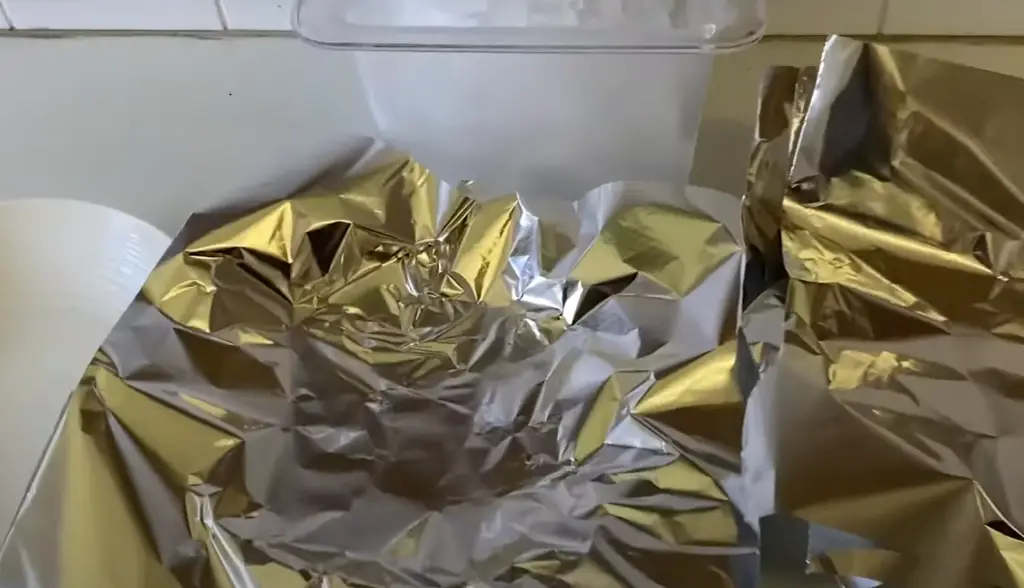
In addition, aluminum foil is non-porous which means that moisture cannot pass through it easily – this prevents any steam produced by your food from evaporating, creating more insulation and trapping in more heat.
How Does Aluminium Foil Keep Houses Cool/Warm?
Aluminum foil is an excellent insulator, making it an ideal material to use for keeping houses cool in the summer and warm in the winter. In hot weather, aluminum foil reflects heat away from a house, while in cold weather its reflective properties can help keep heat inside.
This layer of insulation can be especially effective if applied with other types of insulation such as foam board or fiberglass batting.In order to get the maximum benefits of aluminum foil as an insulator, it should be applied to the roof and walls of a home. The reflective surface of the foil won’t just keep heat in or out, it will also reduce exterior noise levels and help reduce energy costs. It can also be used in combination with other insulation materials such as fiberglass batting or foam board to create an air pocket that further reduces heat transfer.
When using aluminum foil as a house insulator, make sure to install it correctly. To get the most from your insulation project, consult with a professional installer who can ensure that all seams are sealed properly and that the proper installation technique is followed. This will help ensure maximum efficiency from your insulation project. [3]
How Does Aluminium Foil Keep Bodies Warm in Space Blankets?
Space blankets are usually made up of two layers of thin, heat-reflective aluminum foil sandwiched between a layer of breathable fabric. This combination creates an insulation barrier that helps to keep the body warm by reflecting warmth back to the body and preventing air from escaping. The foil provides superior insulation because it is highly reflective and does not allow air or moisture through, keeping you warm without adding bulk or weight. The fabric layer also works to lock in warmth and prevent any cold air entering the blanket. This makes space blankets perfect for use in camping, hiking, skiing or emergency situations where conserving body heat is essential.
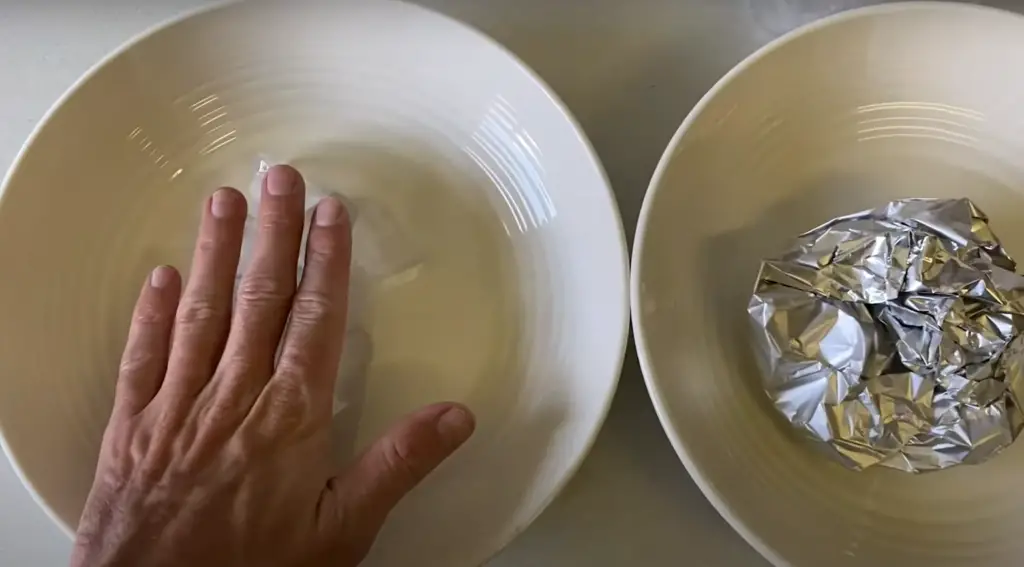
Aluminum foil has proven itself as a great insulator time and time again, providing safe and effective protection against extreme temperatures and conditions. It is lightweight, durable and versatile making it perfect for a variety of insulation tasks. Whether you’re looking to keep your body warm in a space blanket or protect sensitive equipment from the elements, aluminum foil can provide superior protection wherever and whenever you need it. [4]
How To Keep Food Warmer Longer Using Aluminium Foil?
Aluminum foil is an effective way to keep food warm for longer periods of time. It can be used in a variety of ways, from wrapping individual portions of food or creating large tins that can store multiple hot dishes at once. When used correctly, aluminum foil can help retain heat and moisture, ensuring that your food stays as fresh and flavorful as when it was first cooked. Here are some tips on how to use aluminum foil to keep your food warmer for longer:
- Preheat the oven with the aluminum foil inside. This will help to create a barrier between the heat source and the food which will ensure that the heat remains sealed within the container.
- Cover all exposed edges of the container with aluminum foil. This will help to trap the heat by preventing it from escaping through any gaps or cracks in the container.
- Wrap individual portions of food with aluminum foil before placing them into the oven. This will create an additional layer of insulation which will help keep your food hot for longer periods of time.
- Use multiple layers of aluminum foil when creating large batches or tins that can store multiple dishes at once. This will help to ensure that all sides are equally insulated and all heat is evenly dispersed throughout the tin or container.
By using these tips, you can easily keep your food warmer for longer periods of time using aluminum foil! Additionally, aluminum foil is a great way to prevent cross-contamination between foods, as the foil acts as a physical barrier that prevents any bacteria from transferring from one food item to another. So not only will your food stay warm and fresh longer, but it’ll also be safer to eat!
Different Aluminium Foil Options
Aluminum foil comes in a variety of thicknesses and finishes, allowing you to choose the best option for your insulation needs. The thicker the aluminum foil, the better it will trap heat and prevent heat transfer. A thinner grade aluminum foil will be less effective as an insulator.
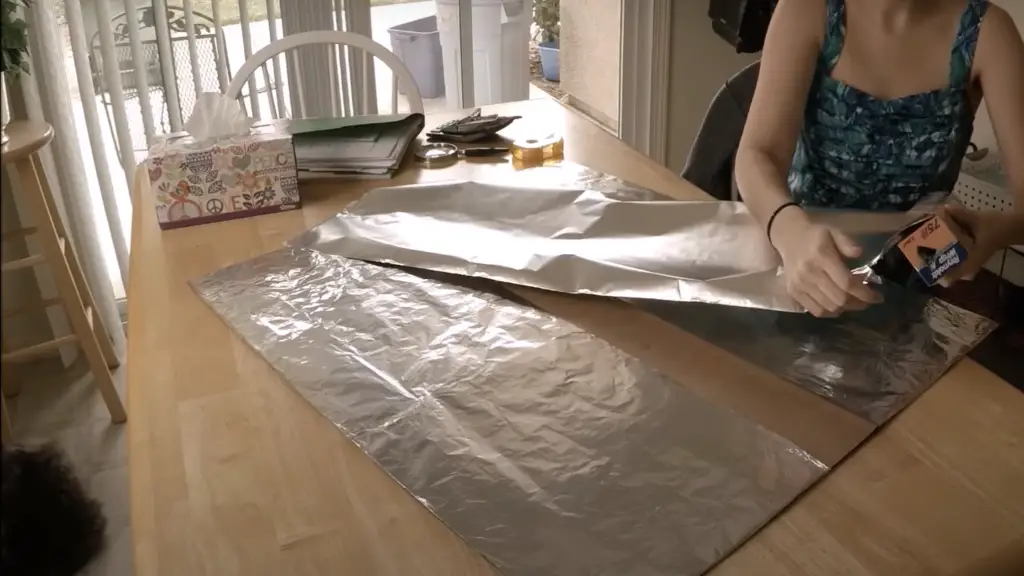
Additionally, different finishes on aluminum foil can affect its ability to retain heat or act as an insulator. For example, non-stick aluminum foil has been treated with chemicals that make it more able to resist sticking, but this finish also affects its ability to keep out moisture and air and therefore can reduce its ability to act as an effective insulator. If you are using aluminum foil for insulation purposes, it is important to select the best type of material for your needs.
Using aluminum foil as an insulator can be a great way to reduce energy costs and improve the efficiency of your home. It is important to select the right type of aluminum foil for your insulation project, however, in order to ensure that you are getting the best performance possible from your material. With careful selection and use, aluminum foil can be an excellent choice for insulation projects. [5]
Pros and Cons of Aluminum Foil as an Insulator
Aluminum foil has long been used to insulate homes and buildings, but its effectiveness is a debate for many. Here are the pros and cons of using aluminum foil as an insulation material:
Pros:
- Lightweight: Aluminum foil is lightweight, making it relatively easy to transport and install in walls or around ducts, windows, etc.
- Cost Effective: Aluminum foil can be economical since it doesn’t require complex installation processes like other insulation materials do.
- Resilience: Unlike other materials, aluminum does not corrode easily and can withstand extreme temperatures.
- Fire Retardant: Aluminum foil is fire retardant if exposed directly to flames due to its low melting point.
Cons:
- Low R-Value: Aluminum foil typically has a lower R-value than other insulation materials, meaning it does not offer as much resistance to heat transfer and is not as effective as an insulator.
- Installation Difficulty: Foil insulation can be difficult to install since it needs to be tightly sealed against surfaces in order for it to be properly insulated. If not installed correctly, aluminum foil may not provide enough protection from the elements.
- Durability: Aluminum foil is vulnerable to punctures or tears, making it less durable than some other insulation products. It is also vulnerable to moisture accumulation, which can decrease its effectiveness over time.
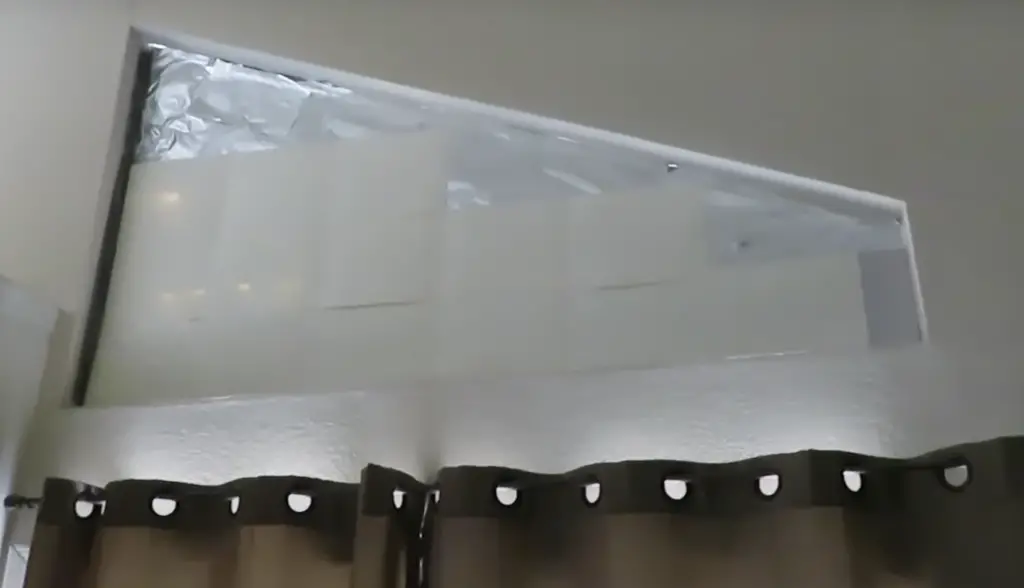
In conclusion, aluminum foil can be a good insulator if used properly, but there are certain drawbacks to consider when deciding whether or not it’s the right choice for your home. Ultimately, it’s important to weigh all of the pros and cons of aluminum foil insulation before making a decision. [6]
FAQ
Is aluminum foil a good insulator or conductor?
Aluminum foil is an excellent conductor of heat, which makes it great at reflecting and dissipating heat. While aluminum foil does not provide the same level of insulation as other materials such as Styrofoam or fiberglass, it can still be an effective insulator in some applications. For instance, if you wrap food in aluminum foil before storing it in the refrigerator, the foil will help retain the food’s temperature and prevent it from spoiling quickly. As a general rule of thumb for insulation purposes, thicker layers of aluminum foil are more effective than thinner ones.
Can I use aluminum foil to reduce noise?
Yes, you can use aluminum foil to reduce noise from outside sources. The reflective nature of aluminum helps to redirect the sound waves away from your home or business. To use this technique, simply cover the walls and windows of a room with several layers of aluminum foil. However, be aware that this will also reduce the amount of light entering the space, so you may want to consider other noise-reduction techniques as well.
Is aluminum foil safe to use for cooking?
Yes, aluminum foil is generally considered to be safe for cooking. Though it can sometimes react with acidic foods, it does not usually release any dangerous toxins into food when used correctly. However, if you’re concerned about safety when cooking with aluminum foil, there are some precautions you should take: Avoid using overly sharp utensils on it, as these can cause it to tear and allow pieces of foil to get into your food. Also, always avoid using aluminum foil in the microwave, as microwaves can cause the metal to spark and create potential fire hazards.
Does aluminum foil insulate cold?
Yes, aluminum foil is an excellent insulator against cold. It works by forming a barrier between the object and the cold source, preventing heat transfer from one side to the other. This means that it can keep things warm or cool for extended periods of time. In addition to its insulation properties, aluminum foil also reflects light and radiant energy which helps maintain temperatures even further. Aluminum foil can be used to wrap food items before freezing them or storing them in the fridge. This will help maintain their temperature longer as well as prevent freezer burn on delicate foods like vegetables and seafood. You can also use aluminum foil when packing meals for lunch or picnics to keep food fresher for longer. For added convenience, many places now sell pre-cut sheets of aluminum foil which can be used for insulation and to store food.
Why not use aluminum foil?
While aluminum foil is an effective insulator, it does have some negative aspects. Aluminum foil is not breathable, which means that moisture can accumulate beneath it if the item it’s covering has high humidity levels. Additionally, aluminum foil can be noisy when moved and is not particularly durable; meaning that it may tear or puncture easily. It also cannot be recycled in many areas due to its thinness and potential contamination with food waste or other materials. For these reasons, aluminum foil should not be used for insulation in long-term projects where something more durable such as fiberglass insulation would work better. Overall, aluminum foil is a great choice for short-term insulation needs and can help keep things cold or warm for extended periods of time.
What are the pros and cons of aluminum foil?
Pros:
- Aluminum foil is non-toxic and does not contain any volatile organic compounds, making it a safe and eco-friendly insulation material.
- It can be used to insulate against both heat and cold. It reflects the sun’s rays in the summer, preventing hot air from entering the house, while also trapping warm air inside during winter months.
- Aluminum foil is lightweight, durable, and easy to install. It can be cut to fit various shapes and sizes of doors, windows, and other areas where insulation is needed.
Cons:
- Aluminum foil is not as effective at insulating as other materials such as fiberglass or foam insulation. Its reflective properties are not as strong as other materials, so it needs to be applied in thicker layers to achieve an equivalent insulation effect.
- It can tear or puncture easily if not handled carefully, and is not water resistant. The foil also has an aesthetically unappealing appearance when used as insulation.
- Lastly, it is more expensive than some of the other available insulation options on the market.
Overall, aluminum foil can be a good choice for insulating certain areas of your home, but should be used with caution due to its limitations compared to other insulation materials. For best results, use multiple layers of aluminum foil in conjunction with other forms of insulation for maximum efficiency and protection against heat and cold transfer.
Useful Video: Is aluminum foil a good insulator?
Conclusion
In conclusion, aluminum foil can be a good insulator depending on the situation. It is not as effective as other materials like glass fiber and foam rubber but it can still provide some degree of insulation. If you are looking for an inexpensive way to help keep your home more efficient or reduce heat transfer in certain areas, aluminum foil may be a viable solution. Just make sure that it is properly sealed and applied with the shiny side facing inward. This will ensure that it does its job correctly and effectively. With a bit of planning and research, you can use aluminum foil to help create an energy-efficient environment in your home.
References:
- https://www.multi-line.com.ph/all_news-and-blogs/benefits-aluminum-foil-insulation-roofing/
- https://huntingwaterfalls.com/is-aluminium-foil-a-good-insulator/
- https://www.lawsons.co.uk/blog/home-improvements/5-benefits-of-foil-insulation
- https://www.hunker.com/13416236/why-is-aluminum-foil-a-better-insulator-than-cotton-or-paper
- https://van.physics.illinois.edu/ask/listing/42006
- https://www.htmmalufoil.com/news/industry-news/is-aluminum-foil-a-good-insulator–298.html

